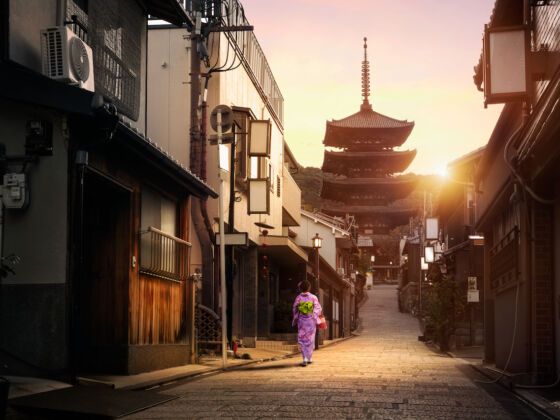1. Samurai and ninja don’t wander the streets.
This is hardly the biggest misconception when it comes to foreigners visiting Japan, but I’m sorry to say it still exists. One can make the argument the samurai spirit, bushido, is still present in each and every Japanese walking around modern Tokyo, but no true samurai with a sword and topknot has existed for 150 years. The association has stuck so well a Japanese TV show was even able to prank a visiting athlete into being on his guard for samurai attacks:
This is as ridiculous as predicting Godzilla will emerge from the sea on Tuesday.
